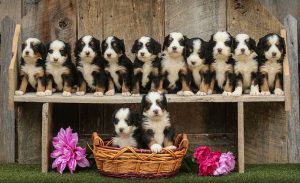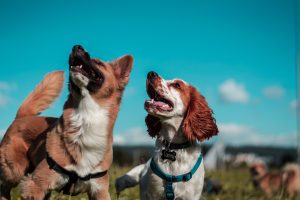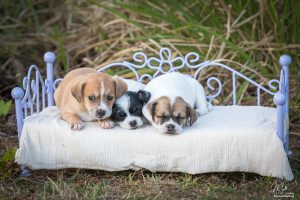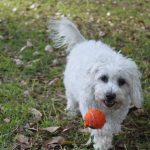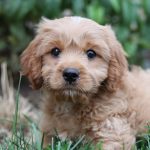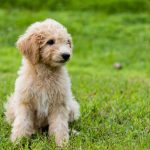Looking for a complete guide on Yorkie? Look no further because you will get all the necessary information about this adorable dog breed here.
Yorkie or Yorkshire Terrier is one of the most popular small-sized dogs around the world. It is one of the Terrier type dog breeds which was developed in Yorkshire, England, in the 19th century.
It is a popular companion dog breed that does exceptionally well as a family dog. Interestingly, other breeds have also been developed from this breed such as a Silky Terrier.
Yorkshire Terriers have grey, black and tan coats, among which tan is the most common. They are a very energetic and playful breed of dogs.
Let’s find out more about Yorkies below.
Table of Contents
History and Introduction
Yorkies were bred in the mid-1800s in Northern England. Suddenly, they became a fashion icon for proper English ladies to have Yorkies as lap dogs in late Victorian times. The Yorkshire Terriers are said to be the creation of weavers of Scotland who moved to England in order to find work.
Yorkshire Terrier is a mixture of three different dog breeds that are nearly extinct these days. Yorkies’ genetic mixture results from a cross of Scottish Terrier, Skye Terrier, and Dandie Dinmont. Some historical sources also suggest the addition of Maltese to this mixture dog breed.
In the beginning, jokes were made about the appearance and origin of the dog, but a turning point in its history came in 1886 when this dog breed was granted recognition by the Kennel Club of England. They were first seen in America in the 1870s and were recognized by American Kennel Club in 1885.
What is good about Yorkshire Terrier?
Given below are the positive traits or pros of having a Yorkie.
- Yorkshire Terrier is finely boned, elegant, and very easy to carry.
- This breed does not take much space because of its small size and can be kept in an apartment without any problem.
- Yorkshire Terrier does not need much exercise.
- It is an excellent watchdog as it does not fail to announce strangers nearby.
- It is a very great breed for allergy sufferers as it does not shed much.
- Yorkie is very peaceful with other dogs and pets.
- It is a very inquisitive and lively dog breed that moves very swiftly with right-footed grace.
Read Mini Groodle – The Best Family Dog
What is bad about Yorkshire Terrier?
We can’t say bad, but some tricky traits that you should know about Yorkies before getting a puppy.
- This breed is very fragile physically and requires great supervision and monitoring.
- They are prone to barking.
- Regular brushing, trimming, and combing of the coat are required because they are low-shedding dogs.
- They are notoriously house breakers.
- If they are not taught to behave from an early age, they show suspiciousness, shrillness, and nastiness.
General Appearance of Yorkshire Terrier
On average, an adult Yorkshire Terrier may grow up to 7 inches high at the shoulders and weighs about 3 to 7 pounds. It has long hair with a blue and tan coat that is parted from the face to the top of the skull till the end of the tail. Yorkie’s body is immaculate, compact, and well-proportioned.
Common behavior and temperament of Yorkies
They are intelligent, fearless, and confident. We can say that they are very small dogs with a big personality. Due to their intelligence and eagerness to please, they make perfect companions and family dogs. Moreover, they are playful and attention seekers and love to become the center of attention.
Sometimes, they may show stubbornness, so it is highly recommended to socialize them from an early age. They are comfortable indoors but can easily be kept in all types of houses.
Important behaviors from Yorkies:
There are two main behavior problems in Yorkshire Terrier:
Housebreaking:
Yorkies are one of the top 5 hardest breeds to housebreaking. Yorkies hate the cold or rainy climate. A doggy door is strongly suggested in case your Yorkie feels the urge to take a leak. You can also teach your dog to use a small box indoor.
Barking:
Yorkies are excellent watchdogs as they bark the very moment any stranger walks to your door. You will have to be quick in order to avoid such a habit of barking of your Yorkshire Terrier. With time and training, it will learn to behave.
How much exercise do Yorkies need?
Yorkies mostly get their exercise indoors, but a little bit outdoor is necessary too because Yorkies get all hyped-up if they don’t get to go outside. They are one of the brightest dog breeds, which means they also require mental exercise. So, a few games and interesting activities, like playing with dog toys, obstacle course, or hide ‘n seek, are also needed if you have a Yorkshire Terrier as a pet.
In short, the combination of indoor exercises, small outdoor walks, and mental stimulation activities would be the best routine for your fur baby.
Training of Yorkshire Terrier
Yorkies are very intelligent and they quickly learn new things, which revolves around the fact of what you are trying to teach your pet. They learn tricks like beg, roll over, spin and dance very quickly. They do need a treat after their performance.
The best practice is to start their training from the day one they arrive your home. Patience and consistency are the keys during the training sessions. Make sure you reward them during the training sessions to encourage positivity from them.
Taking Care of your Yorkshire Terrier:
Nutrition:
A very high-quality feed is necessary for Yorkshire Terrier, which can either be commercially prepared or home-made under your veterinarian’s supervision. Dog feed must be synchronized with your dog’s age (puppy, adult, or senior). Many dogs are weight prone. So, it would be best if you watched your dog’s calorie intake in order to make sure that your dog doesn’t get fat.
Treats are necessary for their training, but too many treats are not healthy in any case scenario. Consult your veterinarian if you are concerned with your dog’s rising weight. Clean and fresh water must be available at all times to your Yorkie to keep him hydrated, especially in hot weather.
Grooming:
Yorkie’s hair coat is very similar to human hair so it must be handled accordingly. If you like to keep your Yorkie’s hair coat long, it needs to be brushed on a daily basis. Yorkshire Terrier needs a bath weekly.
In order to avoid eye irritation caused by the hair, you must trim the hair from the top of the head or pull up its hair with a topknot. They shed hair very infrequently, so you will not have to deal with hair everywhere. Check their ears on a weekly basis to avoid infection and clean them.
Do Yorkies shed?
Probably, it is one of the most common questions about any dog breed. When it comes to Yorkies, they do not have an undercoat so they do not shed much. In fact, their hair is more like a human and they shed as much as you do.
Due to their low-shedding coat, they are considered an ideal breed for people who are allergic to dog dander and hair. But it is recommended to keep them groomed and brush ‘n trim their hair regularly.
Are Yorkies Hyp0allergenic?
None of the dog breeds are completely hypoallergenic. Some breeds shed more and some less. The Yorkshire Terrier is among the low shedders.
Read Small Dog Syndrome: What is it? How do you avoid it?
Yorkshire Terrier Health Concerns
Yorkshire Terrier is generally a healthy dog breed. Responsible breeders screen their stock of Yorkies for certain health conditions like eye anomalies and luxating patella, also known as trick knee condition in humans. In order to avoid luxating patella, you must limit the jumping height of your Yorkshire Terrier, especially as a puppy.
Tests recommended for Yorkshire Terrier:
Following are the tests recommended for Yorkie’s health:
- Patella Evaluation
- Ophthalmologist Evaluation
Some quick facts about Yorkshire Terriers:
Speed: Yorkies are small but very energetic dogs and can run about 10 kilometers per hour.
Gestation period: Typical Yorkshire Terrier females are pregnant for 58 to 68 days.
Life Cycle: An average lifespan of a Yorkshire Terrier is 13 to 20 years. Undersized Yorkies under 3 pounds are more likely to have shorter life spans.
Similar dog breeds to Yorkshire Terrier:
Here are given some similar dog breeds to Yorkshire Terrier:
- The Silky Terrier
- Boston Terrier
- Australian Terrier
- Norwich Terrier
- Cairn Terrier
- Scottish Terrier
- Brazilian Terrier
- Miniature Schnauzer
- West Highland White Terrier
- Skye Terrier
Final words:
So, these were the quick facts and all the necessary info about the Yorkshire Terrier aka Yorkie. And the conclusion is- if you are looking for a small family dog that can become a good watchdog too, Yorkie is an excellent choice for you. Plus, its low-shedding coat is a bonus for those with allergies.
Try to adopt a Yorkie from a shelter or rescue group because there are hundreds and thousands of abandoned and rescued dogs waiting to be adopted by a loving family. If there isn’t any Yorkie available in shelters, get a puppy from a responsible and registered breeder instead of getting one from a puppy mill.
Recommended read:
Irish Doodle Dog Breed Info – A Comprehensive Guide
Moodle Dog Breed Info – One of the Top 3 Australian Dogs
Golden Mountain Doodle – Characteristics and Traits



